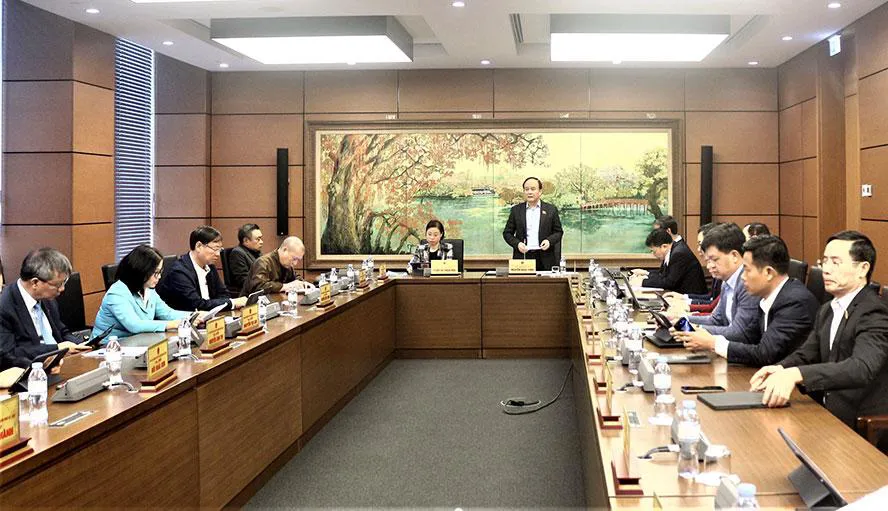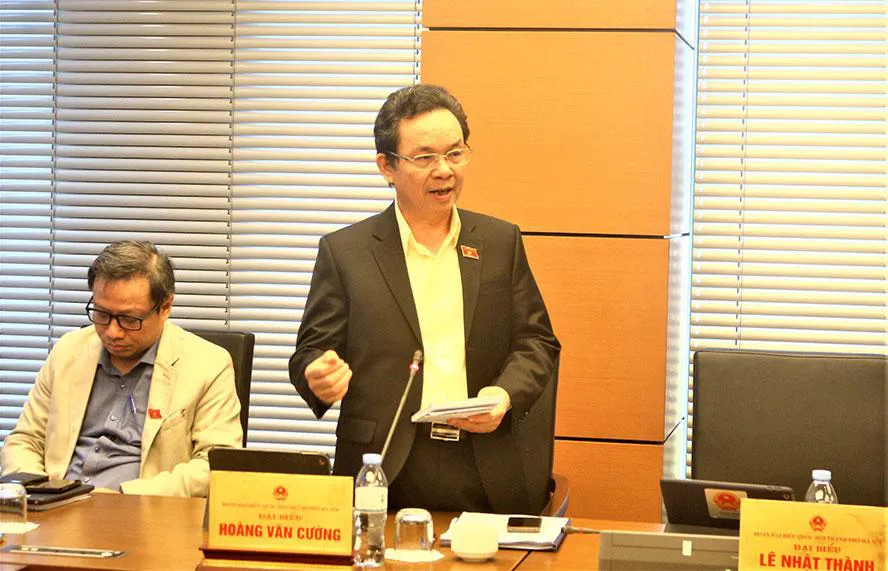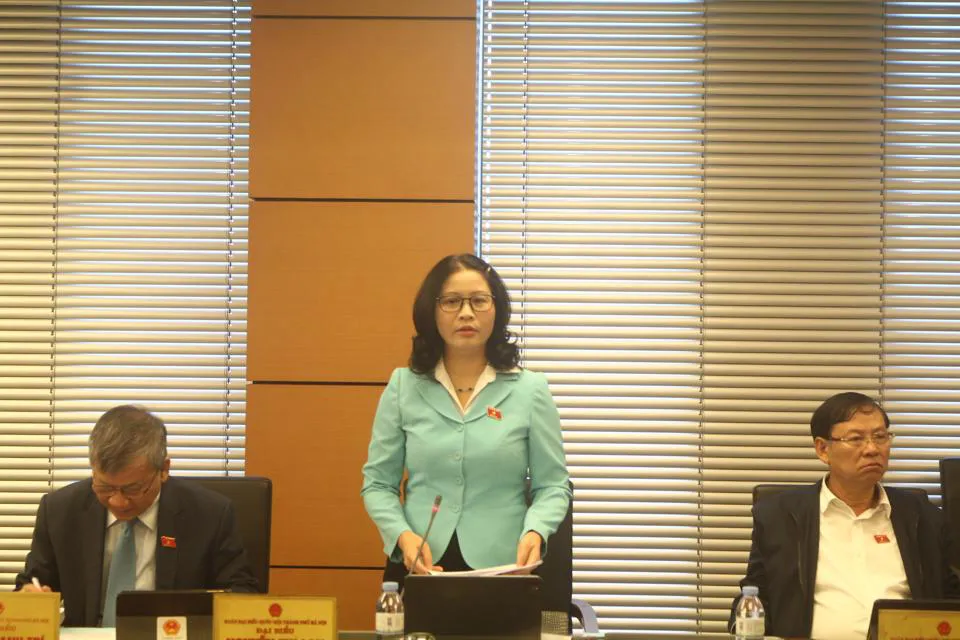Vietnam's economy on right track for recovery
Vietnam's effective response to Covid-19 remains critical to economic recovery.
During a group discussion today [October 22], National Assembly deputies from Hanoi shared their satisfaction with the economy's recovery but warned of bumpier roads for the rest of the year.
| Overview of the session. Photos: The Hanoi Times |
At the discussion, Deputy Nguyen Anh Tri was in favor of the Government’s assessment of this year’s economic performance, especially the GDP growth forecast of around 8%, which would place Vietnam among the fastest-growing economies in the region.
“Despite severe Covid-19 impacts, the drastic efforts from the entire political system helped ensure stable macro fundamentals with inflation under control and key balances intact,” he said.
“Such a success is thanks to the effective and flexible approach in Covid-19 response, along with the capability to grasp opportunities for socio-economic development,” Tri said.
However, he pointed out the rising number of disciplined state officials and the slow progress in the disbursement of public funds in the nine months, which has met only 46.7% of the target.
| Deputy Nguyen Anh Tri. |
Deputy Hoang Van Cuong highlighted the importance of the Government's efforts in giving priority to macro stability over the pursuit of purely economic growth.
"Effective Covid-19 response is critical for economic recovery," Cuong said.
He argued that the high inflation rate in some countries is partly due to stimulus programs with cash injections into the economy. Still, in the case of Vietnam, the supports are in the form of fiscal policies of exemption and rescheduling of tax and fee payments.
"This is the Government's success and should be continued amid the complicated Covid-19 situation."
Cuong noted amid the challenging global economic situation and rising concern over high inflationary pressure, Vietnam should keep a stable exchange rate at any cost and support businesses.
Regarding the slow pace of public investment in many localities in Vietnam, including Hanoi, Cuong called on local authorities to continue awarding contracts to the private sector, saying this could mean a breakthrough in public investment.
For example, in the development of urban railroads, awarding contracts to domestic companies would avoid dependence on foreign contractors.
"This, on the one hand, could accelerate public investment and, on the other hand, promote an independent and self-reliant economy while supporting the development of domestic industries," Cuong added.
Deputy Nguyen Tuan Thinh attributed Vietnam's strong growth to the adequate performance of three key pillars of Vietnam's economy, including consumption, investment, and exports.
Thinh suggested the Government's GDP growth target of 6.5% in 2023 remains feasible but expected an active and cautious approach from the authorities to ensure growth.
According to Thinh, the consumer price index (CPI), the main gauge for inflation, expanded by 2.73% during the first nine months of 2022, below the 4% threshold. He warned the Government to continue monitoring prices of essential commodities, especially food and petrol products.
| Deputy Hoang Van Cuong. |
Regarding the recent shortage of petrol supplies and subsequent shutdown of gas stations in the South, Thinh noted that this concern requires greater attention from the Government.
“Rising prices of strategic commodities would first impact workers and those in the low-income group,” he asserted.
During the session, the majority of deputies called for the Government to continue focusing on stabilizing the macro-economy and restructuring the finance and real estate market to ensure their healthy development.
The Government should prioritize addressing weak banks, staying selective in attracting FDI, and managing petrol sources effectively.
| Deputy Nguyen Thi Lan. |
Deputy Nguyen Thi Lan referred to voters' recommendations on further pushing for the development of the agricultural sector, especially addressing the lack of a high-quality workforce in the sector.
"The Government should be active in tackling this issue and consider special mechanisms for Hanoi in developing its agricultural sector," Lan added.
Meanwhile, Deputy Le Quan urged the Government to anticipate global challenges and address shortcomings of internal issues such as bad debts and disrupted liquidity for consumption.
During the nine months, Vietnam's GDP growth stood at 8.83%, putting the economy on track to hit an 8% economic expansion rate for the year, higher than the goal set by the National Assembly by 2-2.5 percentage points.



.jpeg)











